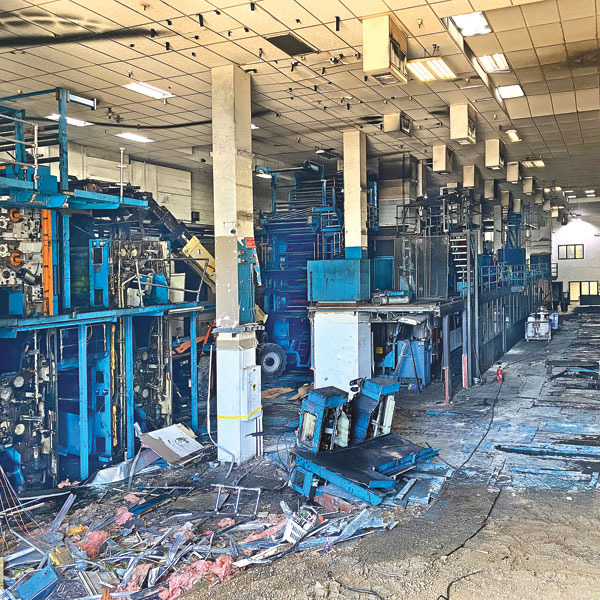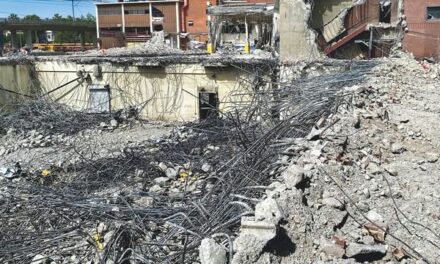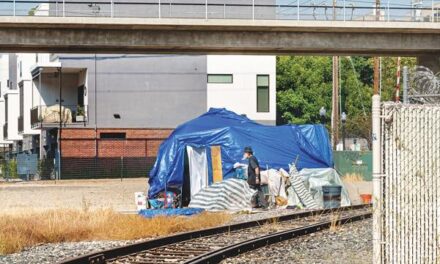Three months ago, the Bee announced its print circulation was 25,325. The number represented a one-year drop of about 35%. It signaled massive revenue losses, $17 million if annual subscribers paid $1,200. About 5% of digital subscribers also disappeared.
As a former Bee reporter who remembers when circulation topped 300,000, I type these numbers with sadness. In 2019, the Bee sold 93,000 copies daily.
I escaped the newsroom at 21st and Q streets 16 years ago, when I saw deep cracks in the Bee’s fundamentals. I knew management wasn’t capable or willing to address threats from online advertising and free news content. I decided the Bee had no future.

That was a smug assessment. Now it’s serious. As lights flicker and the Bee’s final plunge gains momentum, it’s time to stop discussions about whether the paper is good or bad or whether leadership was inept or victimized by tech.
It’s time to consider life without a local daily print newspaper.
The Bee’s death spiral coincides with the collapse of another important regional news operation, Capital Public Radio. An audit commissioned by Sacramento State University, which holds broadcast licenses for CapRadio, revealed critical leadership blunders and an oblivious board of directors.
CapRadio reached for the moon. It hired staff, designed fancy new studios and leased a Downtown performance space. Such pretensions were missions impossible. CapRadio was insolvent, unable to pay rent or debt service on an $8 million loan.
Faced with calamity, Sac State seized operational control of CapRadio. The university’s new president vows to rebuild from the rubble. But CapRadio’s ability to produce news, analysis and commentary on local stories is uncertain.
It’s time to consider life without a news-forward public radio station.
There are few parallels between CapRadio’s disintegration and the Bee’s corpse. CapRadio’s heart attack hit fast. The Bee’s deterioration was slow and steady for nearly two decades, with managerial purges and bankruptcy.
In 2020, McClatchy family stockholders sold their newspapers to a New Jersey hedge fund, Chatham Asset Management. The building on 21st Street was offloaded and abandoned for redevelopment, the presses dismantled and sold for scrap.
What remains of circulation is printed in the Bay Area and hauled to Sacramento, soon enough in a hatch back. What’s left of the news staff works mostly from home or rented space on Alhambra Boulevard.
Without the daily Bee and CapRadio, the city won’t earn the label “news desert.” But there’s no replacement for a powerful newspaper and ambitious public radio news programs.
Inside Sacramento magazine covers the city but only publishes monthly. Sactown produces six colorful editions a year but caters to suburban audiences intrigued by plastic surgeons and Napa wine tours.
Local TV and commercial radio stations aim cameras and microphones at weather stories, car crashes and police roadblocks. They have limited interest in substantial reports built over time.
Important local stories always went untold, even when the Bee had 300 reporters, photographers and editors covering the region. When I joined Mayor Kevin Johnson’s staff in 2009, I was surprised by how little the media (me included) knew about City Hall and local government.
It’s worth noting the sex scandals that ended Johnson’s political career were resurrected by national media outlets, not local. And today, City Hall coverage is far weaker than it was a decade ago.
I fear the decline of local journalism is so steep and inevitable that residents won’t have time to process the loss.
One day soon, there will be no more printed Bee. Without subscription revenue and money from print ads, budget cuts will further decimate an online skeleton staff of college interns and a few old hands. CapRadio may survive, but with more syndicated programming and less local emphasis.
Who will generate local news? I see two sources. Newsmakers themselves, including elected officials and community leaders, with reports engineered for self-interest and promotion. Then comes social media influencers, prompted by payoffs and working source-free with no concern for objectivity or fact.
I never missed the Bee when I walked away. Now I miss it already.
R.E. Graswich can be reached at regraswich@icloud.com. Follow us on Facebook, X and Instagram: @insidesacramento.















